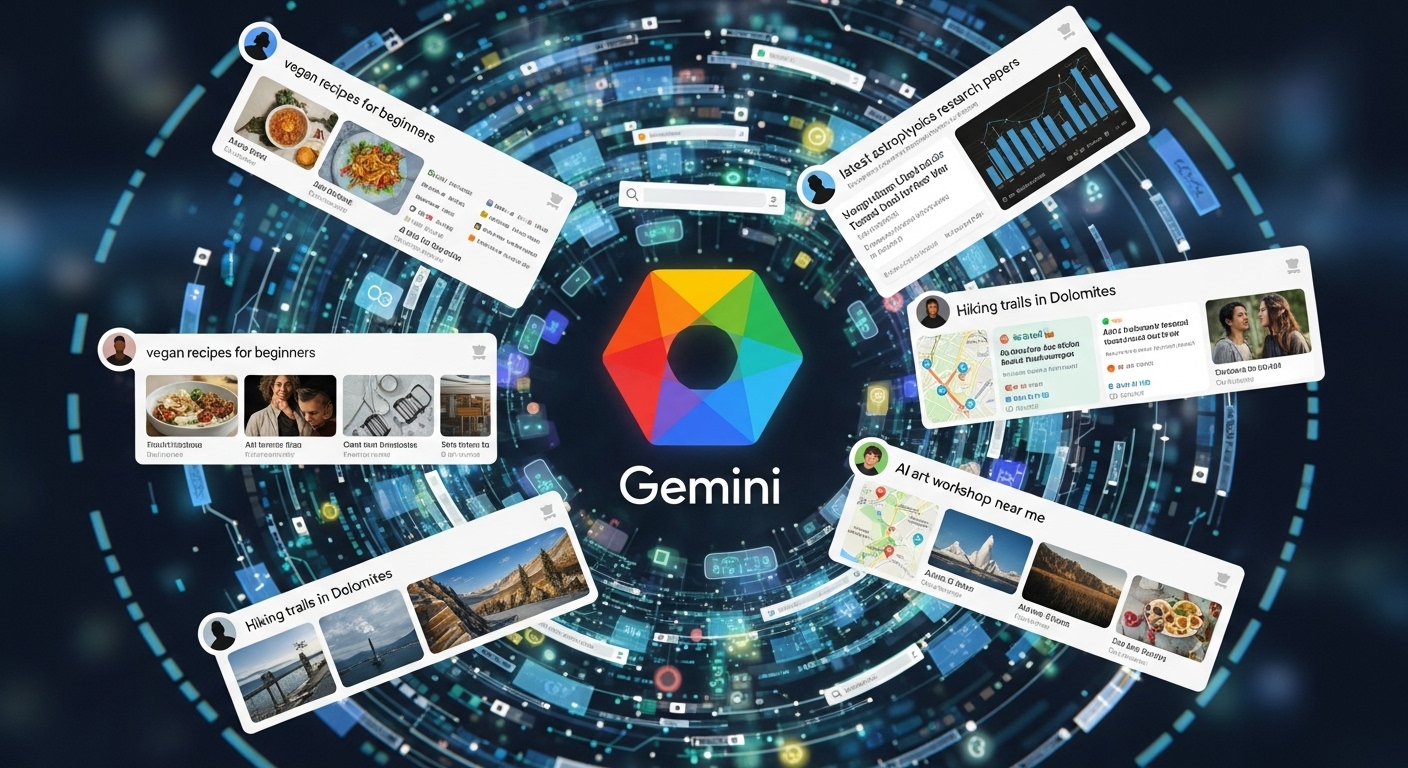Search has always been Google’s strongest pillar. For years, it has been the gateway through which billions of people access information daily. But with the rapid rise of artificial intelligence, the way we search, process, and interact with information is undergoing a major transformation. At the center of this shift stands Google Gemini, Google’s next-generation AI model designed to power personalized, intelligent, and context-aware search results.
From powering the Gemini app to enhancing conversational tools like Ask Gemini, this new technology is redefining how users connect with the web. In this blog, we’ll explore how Google Gemini works, what sets it apart, and why it is poised to revolutionize search experiences worldwide.
What is Google Gemini?
Google Gemini is Google’s advanced AI model designed to compete with and surpass existing AI technologies in terms of reasoning, language understanding, and personalization. Unlike traditional search engines that rely heavily on keyword matching and ranking algorithms, Gemini integrates deep AI reasoning, multi-modal capabilities, and personalization features to deliver results tailored to individual users.
This means search is no longer just about finding information—it’s about understanding context and providing the most meaningful answer at the right time. Whether it’s a direct response, a Google Gemini photo interpretation, or predictive suggestions, Gemini ensures that every query feels more intuitive and personal.
The Role of the Gemini App
The Gemini app is Google’s dedicated platform that brings the full power of Gemini AI into users’ hands. Acting as both a standalone assistant and an integrated tool across Google products, the app allows people to:
- Ask complex questions using Ask Gemini
- Access conversational responses with context-awareness
- Explore recommendations tailored to personal preferences
- Benefit from real-time updates powered by Google AI Gemini
This makes the Gemini AI app not just another AI chatbot, but a true personalized search assistant.
How Google Gemini Improves Personalized Search
1. Contextual Understanding
Unlike traditional search engines that often provide generic results, Gemini’s algorithms interpret queries based on context, user history, and intent. For example, if you search for “best restaurants,” Gemini considers your location, dietary preferences, and past searches before giving results.
2. Multi-Modal Capabilities
One of Gemini’s most exciting features is its ability to process text, images, and even video. Through Google Gemini photo recognition, users can upload pictures and receive meaningful insights—such as identifying an object, finding shopping links, or translating foreign text in real-time.
3. Personalized Recommendations
The integration of AI Gemini means that your searches evolve with your behavior. If you’re a frequent traveler, Gemini might suggest flight deals or local attractions. If you’re into technology, it may prioritize tech news or AI updates.
4. Conversational Queries with Ask Gemini
Ask Gemini allows users to move beyond keyword-based searches and instead engage in natural, conversational questions. For instance, instead of typing “weather Paris,” you might ask: “Will it rain in Paris next weekend?” Gemini processes the query with advanced reasoning to provide direct, actionable answers.
The Power of Gemini AI in Everyday Life
Smarter Workflows
With Gemini AI app integration, professionals can streamline workflows. Imagine drafting emails, summarizing reports, or analyzing data—all within the app.
Enhanced Creativity
For creators, Google AI Gemini helps with idea generation, design support, and even editing tasks. Combined with Google Gemini photo tools, it supports image-based creativity alongside text-based intelligence.
Personalized Learning
Students can use Gemini AI to ask questions, break down complex concepts, and receive customized study plans. The Ask Gemini feature makes learning interactive and adaptive to individual needs.
Google Gemini vs Traditional Search
Traditional Google Search has always been powerful, but Google Gemini takes it a step further by shifting from information retrieval to information reasoning. Instead of delivering a list of blue links, Gemini delivers answers, solutions, and actions.
This evolution means fewer clicks, less time wasted, and more personalized experiences. Gemini doesn’t just help you search—it helps you understand, decide, and act.
The Future of Search with Google Gemini
Integration Across Google Ecosystem
We can expect Google Gemini AI to integrate seamlessly into platforms like Gmail, Maps, YouTube, and Docs. This means your personal assistant will be everywhere you go, anticipating your needs before you even type them out.
Voice and Visual Search
With voice commands and tools like Google Gemini photo recognition, search will become more natural and visual. Instead of describing something in words, you’ll simply snap a photo or ask aloud.
Continuous Personalization
As AI Gemini learns more from user interactions, the level of personalization will deepen, making search results more aligned with your unique lifestyle and preferences.
Challenges and Considerations
Despite its potential, Google Gemini comes with challenges:
- Privacy Concerns: Personalization requires user data, which raises questions about data security.
- Bias in AI: Like any AI system, Gemini must address biases to ensure fair and accurate results.
- Competition: With tools like ChatGPT, Anthropic’s Claude, and other AI assistants, Gemini faces a crowded market.
Still, Google’s extensive ecosystem and resources give Google AI Gemini a significant advantage.
Conclusion
Google Gemini is more than just another AI model—it’s a complete transformation of how we interact with information. From the Gemini app to Ask Gemini, and from Google Gemini photo tools to the Gemini AI app, it represents a new era of personalized, contextual, and intelligent search.
By moving beyond traditional keyword-based searches, Gemini creates an environment where queries feel like conversations, results feel intuitive, and actions feel seamless. With Google AI Gemini at the helm, the future of search is not just about finding information—it’s about truly understanding the user.
As AI becomes the backbone of search, one thing is certain: Google Gemini is revolutionizing personalized search results, and it’s only the beginning.
FAQs
Q1: What makes Google Gemini different from BERT or MUM?
Gemini is multi-modal and heavily personalization-driven, making it more adaptive than past models.
Q2: How does Gemini improve personalized search results?
It analyzes user intent, behavior, and context to serve more relevant and accurate content.
Q3: Will Gemini change SEO strategies?
Yes, SEO must focus more on user intent, high-quality content, and EEAT principles.
Q4: Does Gemini raise privacy concerns?
Yes, personalization requires data collection, so transparency and user control will be vital.
Q5: What industries benefit most from Gemini?
E-commerce, local businesses, and content creators will see the biggest impact.








